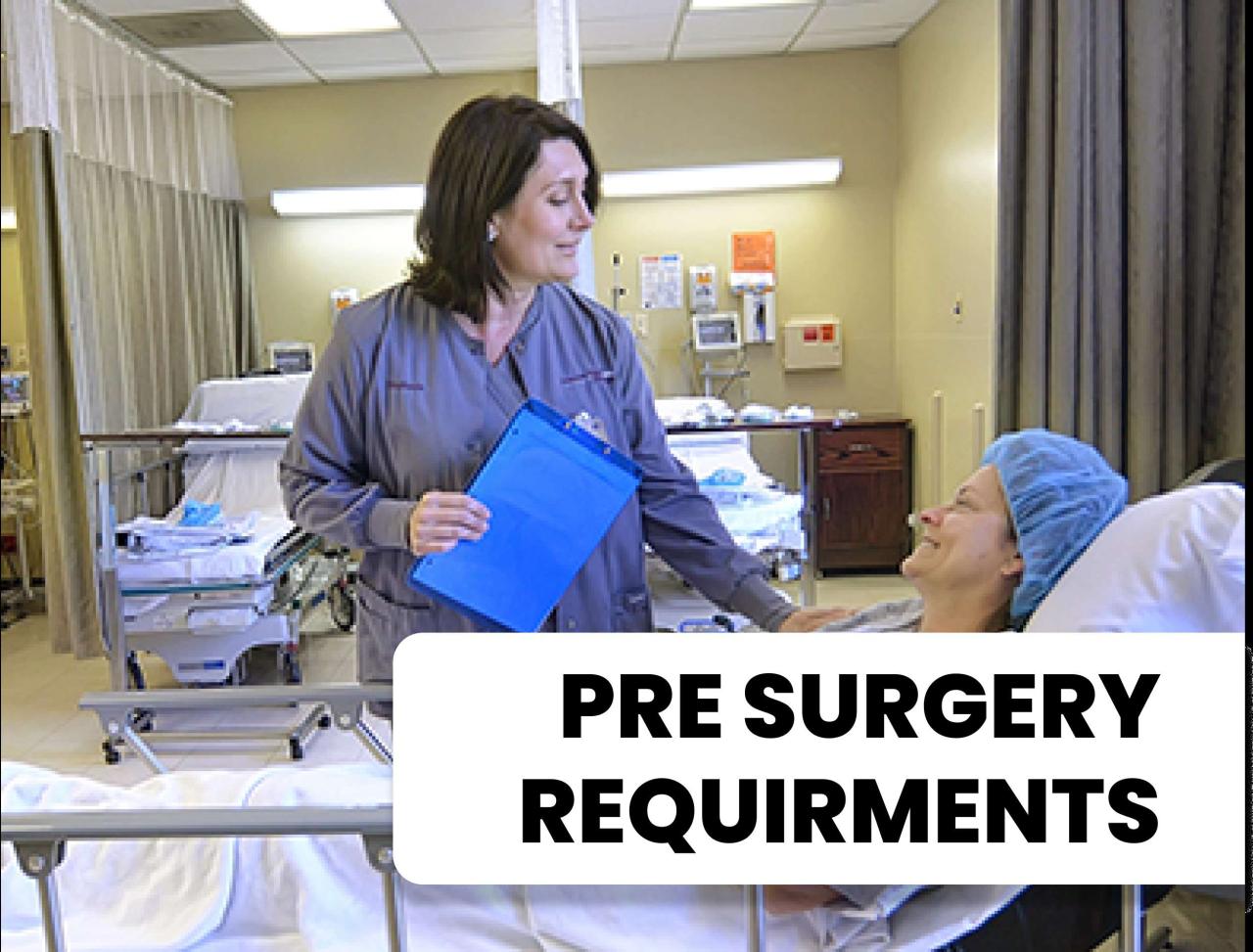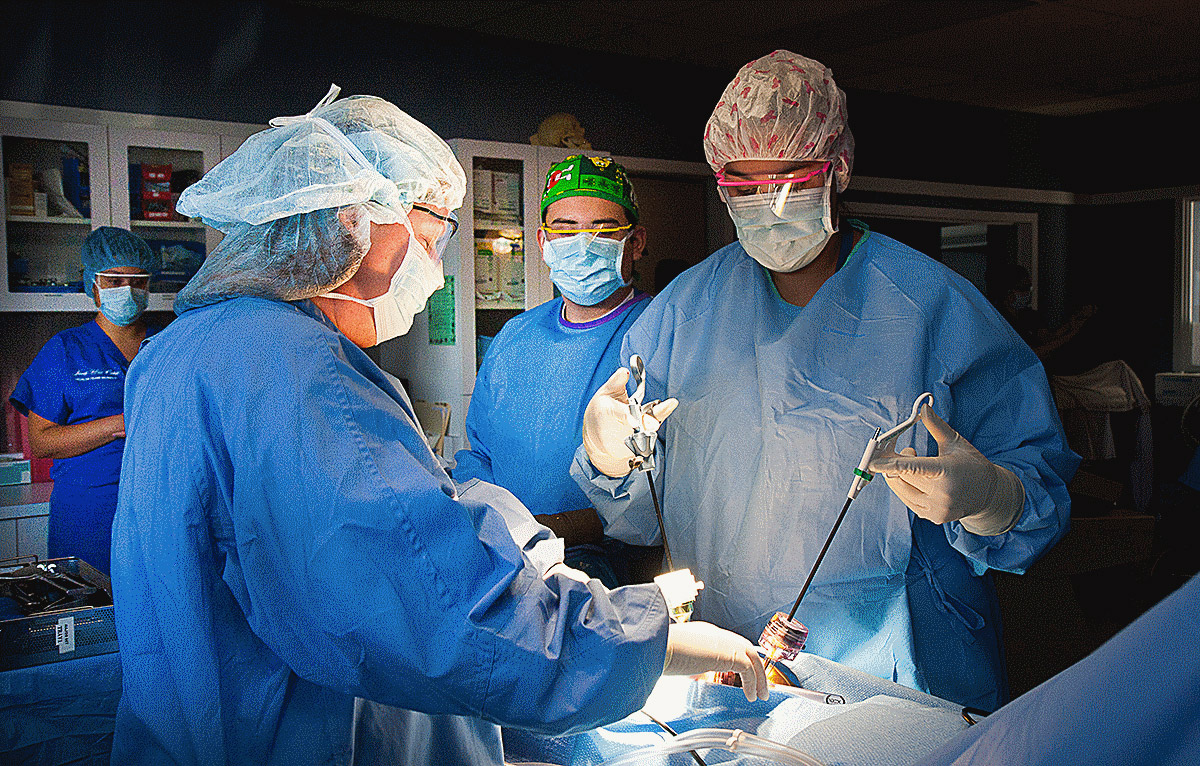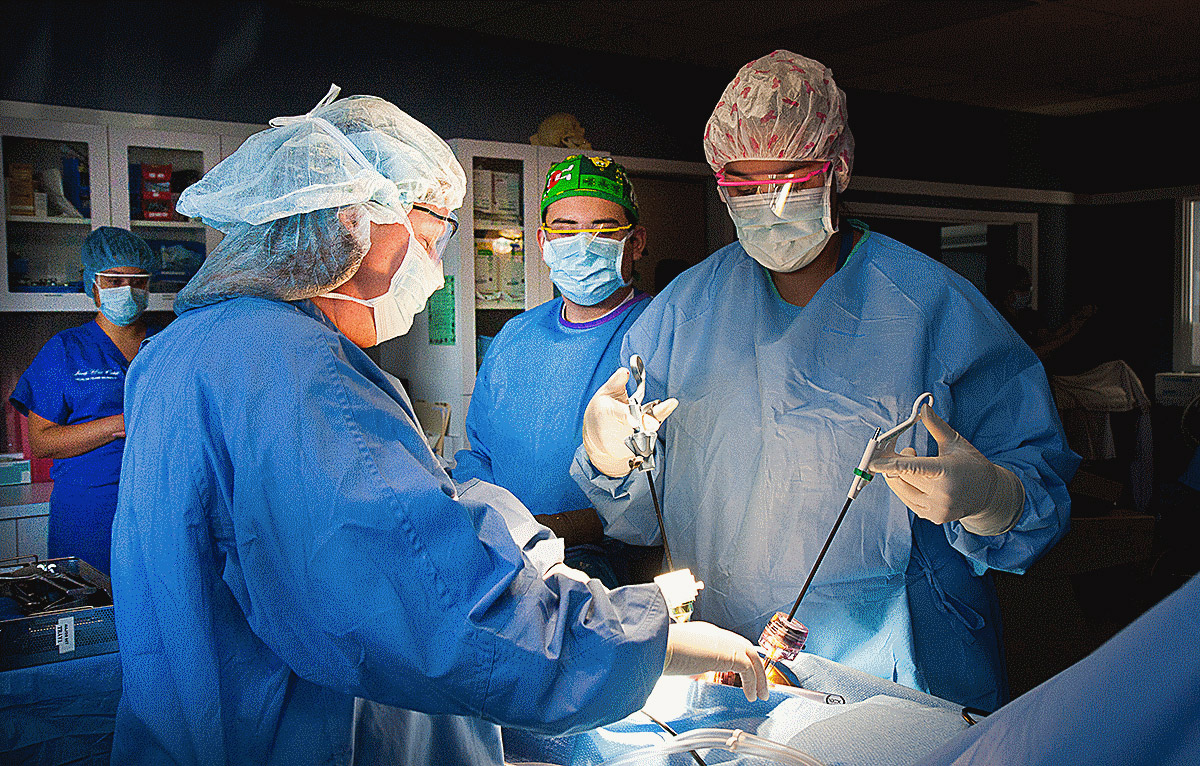Surgical tech program admission requirements and prerequisites can seem daunting, but understanding them is key to a successful application. This guide breaks down the process step-by-step, covering everything from educational background and prerequisites to application materials and health screenings. We’ll explore the different types of programs, entrance exams, and what sets apart a strong application. Let’s get you ready to launch your surgical technology career!
This detailed walkthrough covers the various aspects of applying to surgical technology programs. We’ll delve into the specific requirements, common hurdles, and strategies for maximizing your chances of acceptance. From understanding GPA expectations and prerequisite courses to navigating background checks and health requirements, we aim to equip you with the knowledge needed to confidently navigate the application process.
Surgical Tech Program Admission Requirements and Prerequisites

So, you’re thinking about becoming a surgical technologist? That’s fantastic! It’s a rewarding career path, but getting into a surgical tech program requires careful planning and preparation. This guide will walk you through the typical admission requirements and prerequisites, helping you navigate the application process smoothly.
Educational Requirements for Surgical Tech Programs

Meeting the educational requirements is the first hurdle. This typically involves a high school diploma or equivalent and specific prerequisite courses. Let’s break it down.
| Requirement | Description | Typical Documentation Needed | Exceptions |
|---|---|---|---|
| High School Diploma or Equivalent | A high school diploma or GED is generally required for admission to surgical technology programs. | Official high school transcript or GED certificate. | Some programs may consider applicants with significant work experience in a related field, but this is rare. |
| Minimum GPA | Most programs have a minimum GPA requirement, usually a 2.5 or higher. This demonstrates academic readiness. | Official college transcripts (if applicable). | Some programs might offer conditional acceptance with a lower GPA, requiring successful completion of specific courses. |
Here’s a glimpse into GPA requirements at various institutions (these are examples and may vary):
| Program Type | Institution Example | Minimum GPA |
|---|---|---|
| Associate’s Degree | Community College A | 2.75 |
| Associate’s Degree | University B | 2.5 |
| Certificate Program | Hospital-Based Program C | 2.0 |
Prerequisite courses are crucial. They build a solid foundation for your surgical tech studies.
- Biology: Provides a base understanding of living organisms, essential for comprehending surgical procedures and asepsis.
- Anatomy: Fundamental knowledge of the human body’s structure is vital for surgical assisting.
- Physiology: Understanding how the body functions is crucial for recognizing potential complications during surgery.
- Medical Terminology: Essential for effective communication within the surgical team.
Admissions Processes and Application Materials

The application process generally involves several steps. Familiarize yourself with the timeline and requirements to stay organized.
- Initial Inquiry: Contact the program to request information and confirm your eligibility.
- Application Submission: Complete and submit the program’s application form, often online.
- Transcript Submission: Provide official transcripts from all previously attended colleges or universities.
- Recommendation Letters: Submit letters of recommendation from individuals who can attest to your skills and character.
- Interview (if required): Participate in an interview to demonstrate your suitability for the program.
- Acceptance/Rejection Notification: Receive notification regarding your acceptance or rejection into the program.
Here’s a list of typical application materials:
- Completed application form
- Official high school transcript
- Official college transcripts (if applicable)
- Letters of recommendation (usually 2-3)
- Resume or curriculum vitae
- Personal statement or essay
Use this checklist to ensure you’re prepared:
- Application form completed and submitted
- Transcripts requested and received
- Letters of recommendation secured
- Resume/CV prepared and submitted
- Personal statement drafted and reviewed
- Application fees paid (if any)
Entrance Exams and Standardized Testing
Many surgical technology programs require entrance exams to assess your academic readiness. Common exams include the TEAS (Test of Essential Academic Skills) and HESI (Health Education Systems, Inc.) AET (Admissions Entrance Exam).
Test scores are a significant factor in admissions decisions, but they’re not the only factor.
- GPA
- Prerequisite course grades
- Letters of recommendation
- Interview performance (if applicable)
- Relevant work experience
If you don’t meet the minimum score requirements, consider these options:
- Retake the exam after additional preparation.
- Apply to programs with lower score requirements.
- Highlight other strengths in your application (e.g., strong GPA, relevant experience).
Background Checks and Health Requirements
Due to the sensitive nature of the surgical field, background checks and health screenings are mandatory. These ensure the safety of patients and the surgical team.
| Requirement | Description |
|---|---|
| Background Check | This typically includes a criminal background check and may also involve a drug screening. A clean record is usually required. |
| Health Screening | This might involve a physical examination, immunizations verification, and tuberculosis testing to ensure you’re physically fit for the demands of the profession. |
Addressing potential health concerns:
- Be upfront about any health conditions during the application process.
- Provide documentation from your physician to demonstrate your fitness for the program.
- Work with the program’s admissions staff to determine if accommodations can be made.
Program-Specific Requirements and Variations
Admission requirements can vary significantly depending on the program’s setting and structure. Community college programs might have different requirements compared to hospital-based programs.
So you’re looking at surgical tech program admission requirements and prerequisites? It can be a bit intense, needing things like a high school diploma and maybe some prerequisite science courses. Take a quick break from all that and check out the confirmed line-ups for the Spurs vs Newcastle match – Confirmed line-ups | Spurs vs Newcastle – before diving back into researching those program requirements.
Remember, meeting the prerequisites is key to getting into a good surgical tech program.
| Program Type | Requirement | Description | Example Institution |
|---|---|---|---|
| Community College | Higher Education Credits | May require completion of general education courses. | Example Community College |
| Hospital-Based | Clinical Experience | May require prior experience in a healthcare setting. | Example Hospital |
Program length and specialization also influence requirements:
- Program Length: Shorter certificate programs may have fewer prerequisites than associate’s degree programs.
- Specialization: Programs specializing in areas like pediatric surgery might have additional requirements or preferred experiences.
For example, imagine an applicant with a strong academic record but lacking the required clinical experience. A community college program might be more accessible than a hospital-based program that prioritizes hands-on experience. Conversely, an applicant with extensive clinical experience but a slightly lower GPA might find success with a hospital-based program that weighs experience more heavily.
So you’re thinking about becoming a surgical tech? Awesome! Admission requirements usually include a high school diploma or equivalent, and often specific science prerequisites. Staying healthy is key, so understanding current health concerns is important, like learning more about What is HMVP virus, Chinas recent ‘Covid-like outbreak’, should to stay informed about potential outbreaks.
After all, knowing about infectious diseases is beneficial in any healthcare setting, which helps with your surgical tech program application.
Tips for Successful Application, Surgical tech program admission requirements and prerequisites
Boost your chances of acceptance by following these steps:
- Research programs thoroughly and choose those that align with your goals and qualifications.
- Meet all application deadlines.
- Maintain a strong academic record throughout your prerequisites.
- Prepare for any required entrance exams diligently.
- Craft a compelling personal statement highlighting your motivation and suitability for the profession.
Tips for compelling application materials:
- Tailor your personal statement to each program, emphasizing relevant experiences and skills.
- Seek feedback on your application materials from trusted mentors or advisors.
- Proofread carefully to ensure accuracy and professionalism.
Networking and mentorship are invaluable. Connect with current surgical technologists or program alumni to gain insights and advice. A mentor can provide guidance and support throughout the application process, significantly increasing your chances of success.
Final Conclusion
Landing a spot in a surgical technology program requires careful planning and preparation. By understanding the admission requirements and prerequisites, and actively addressing each step, you significantly improve your chances of acceptance. Remember to thoroughly research programs, prepare strong application materials, and stay organized throughout the process. Your future in surgical technology awaits!
Detailed FAQs
What if I don’t meet the minimum GPA requirement?
So you’re looking at surgical tech program admission requirements and prerequisites? It’s a competitive field, needing things like a high school diploma and maybe some prerequisites like anatomy and physiology. While you’re researching, maybe take a break and check out this game: Tune In: Virginia Tech vs. Minnesota. Then, get back to checking those program requirements – you’ll also likely need to pass a background check and maybe even have some healthcare experience.
Good luck!
Many programs consider other factors like strong letters of recommendation and relevant experience. Contact the program directly to discuss your options.
Can I retake the TEAS or HESI exam?
Yes, most programs allow retakes. Check the specific program’s policies for details on retake timelines and limitations.
What kind of health screenings are typically required?
Common screenings include drug tests, background checks, and physical exams to ensure you can safely perform the duties of a surgical technician.
How important are letters of recommendation?
Very important! Choose recommenders who can speak to your skills and character, ideally those who know you well from academic or professional settings.
